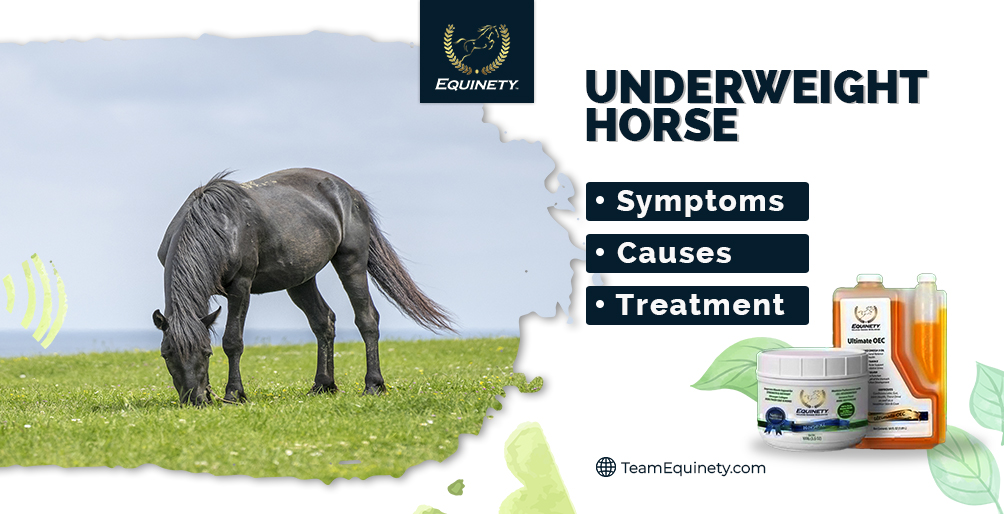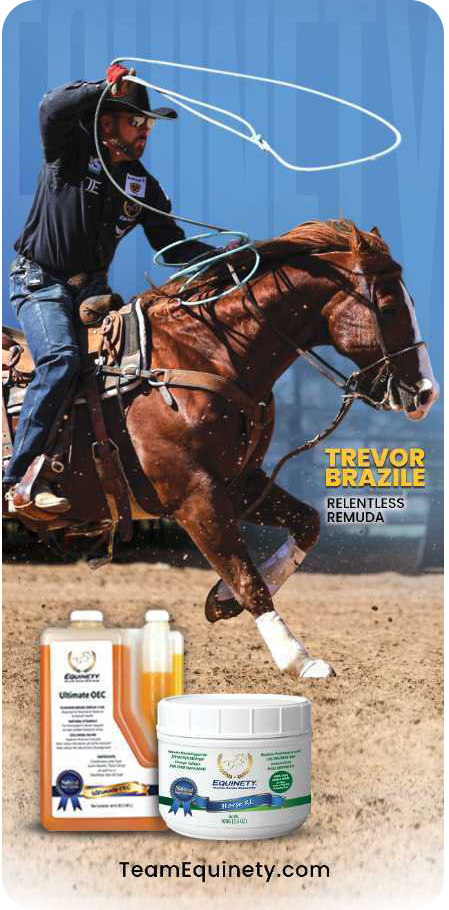Horses must perform substantial tasks like riding on various terrains, exercise, and transportation. But an underweight horse can only do some such activities conveniently.
The overall health of an underweight horse is compromised significantly, and it will reduce their performance. If you owe a malnourished horse, you should know about symptoms and causes to provide effective treatment and care.
When Can You Say Your Horse is Underweight?
Symptoms of Underweight Horse:
If we talk about symptoms of underweight horses, then they vary depending upon the physical condition. But a few common symptoms are given below.
1. Dullness in Coat:
A balanced diet is necessary for the ideal weight of a horse. So, if your horse is not getting enough zinc in its diet, it will lose weight, and can be observed through dull coatings.
2. Weight Reduction:
If an equine loses consistent or significant weight without apparent cause, it is a visible sign of an underweight horse. It would be best to keep a close sight on such weight reduction for proper and early treatment.
3. Weakness:
A horse struggling to perform everyday activities and appear physically weak is underweight. Weakness leads to a quick weight reduction and badly affects the equine’s body.
4. Exposed Bones:
Underweight horses have prominent bones such as the spine, hip bones, and ribs, which are visible due to a lack of muscle and fat. This condition has further consequences if not diagnosed and treated at early stages.
5. Decreased Energy Level:
If your equine is reluctant to be involved in physical activities, a noticeable decrease in energy level and reduced enthusiasm is another symptom of an underweight horse.
You can only treat an underweight horse when you know about the causes. So, several factors contribute to a horse becoming underweight.
1. Inadequate Nutrition:
Proper nutrition is the key to keeping your horse’s weight at a desired level. If it is getting poor quality forage or pasture that lacks essential nutrients, it will lead to weakness in the body. The horse’s digestive system is for small but frequent meals; failure in such requirements will contribute to significant weight loss.
2. Medical Conditions:
A horse suffering from any illness will start losing weight and become weak. Gastric ulcers can interfere with nutrient absorption, and metabolic disorders like insulin resistance can affect the ability of horses to maintain a healthy weight.
3. Work Load:
Excessive workload is very dangerous. So if a hose is engaged in strenuous work with insufficient calorie intake, it will become underweight. More calories are needed to maintain weight when a horse does intense exercise or physical job.
4. Dental Problems:
Missing or worn teeth make it difficult for horses to chew food correctly. They result in reduced food intake, digestive issues, and weight loss.
5. Age:
Due to age-related factors like dental issues and reduced metabolism, senior horses struggle to maintain weight but are likelier to lose weight.
6. Parasites:
Parasites have a significant role in weight reduction as botflies and intestinal worms can steal nutrients from the horse’s diet.
7. Stress:
A horse that is feeling stressed will not be able to feed normally and start losing its weight. Changes in routine, environment, and social dynamics are common factors that lead to stress in equine.
8. Poor Management:
Poor management of horses also causes weight loss. For example, not providing enough water and hay will be quite a disturbing factor for the horse’s weight.
After identifying that your horse is underweight, the next and most crucial step is to initiate a care plan and treatment as early as possible. You can follow a few steps for the best medicine.
- Nutritional Management:
A balanced diet is ideal for underweight horses to regain it at a perfect level, so provide high-quality forage that can fulfill basic nutrition needs. Supplements are also best to feed for fulfilling nutrition requirements.
- Consult with a Veterinarian:
A veterinarian will examine the physical condition of your equine and diagnose the best treatment. Don’t ignore minor health-related issues like dental problems and infections, as they have substantial consequences.
- Gradual Exercise:
Plan a gradual exercise schedule for your horse. It can gain muscle strength and stamina, which is crucial for gaining weight.
- Stress Management:
Provide a stress-free environment to the horse with proper shelter and social interaction so that it starts feeling calm.
- Adequate Rest:
Rest is necessary for underweight horses, so avoid extensive exercise until the horse gains the desired weight.
Home Remedies to make a Horse Gain Weight:
1) Equinety Horse XL:
Equinety Horse XL is a natural supplement based on 100% natural amino acids to assure the best health of your equine. It promotes cellular repair and is ideal for horses as it does not contain sugar, starches, and soy.
It improves muscle support for their strength and recovery. Your horse that is facing weight issues will gain enough strength of muscles and maximum performance with the use of this fantastic product.
2) Equinety Ultimate OEC:
Equinety Ultimate OEC is formulated to provide essential electrolytes to the horse’s body and boost its immune system for the gaining process. It is a pretty budget-friendly option if you want to get the best results.
It has flaxseed-based omega-3 oil, colloidal silver, and natural vitamin E to support joint health, healthier skin and coats, and gastric health. If you want to make your weak horse healthy, it is an ideal product for you.
Helpful Equine Guides for You:
- Horse Weight Loss Symptoms, Causes, and Solutions
- How to Boost Horse Immune System Naturally
- Horse Weight Loss Diet, Exercises, and Supplements
- Horse Weight Gainer Feed and Supplements
- Soft Tissues Injury Types and Treatments in Horses
- How to Increase Horse Hoof Growth
- Best Joint Support Supplements
- Muscle Recovery Natural Supplements for Horses
- Best Gut Health & Digestive Supplement for Horses
- Digestive Supplements for Equine







